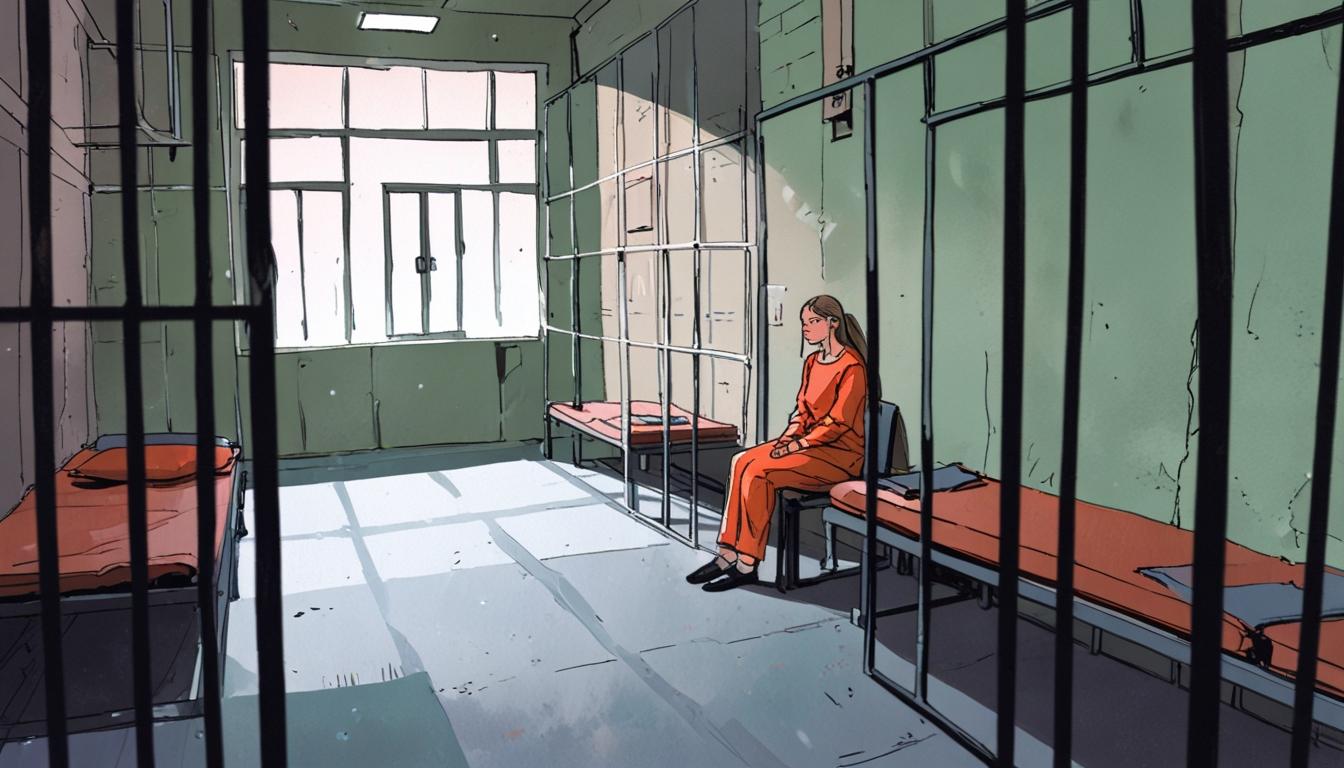At HMP Foston Hall, a women's prison located in Derbyshire, the conditions and experiences of inmates present a varied picture reflective of the complexities surrounding female incarceration. While some women describe the facility as akin to a "holiday camp" or "rehab," others starkly contrast these views, revealing personal struggles that complicate their time inside.
Inmates express a spectrum of sentiments about their incarceration and the broader prison system, particularly amidst the anticipation of an impending sentencing review expected to recommend changes in policy regarding short sentences for low-level crimes. According to inmate Connie Parsons, who has a history of shoplifting, her time in prison often feels less like punishment and more like a cycle she cannot escape. "I normally only get four weeks, three weeks, two weeks," she explained. "It's a constant cycle of going out, committing crime." Parsons, who cites homelessness and drug addiction as factors in her offending, has struggled with self-harm during her time in jail, a stark admission of the emotional toll prison life has taken on her.
These individual stories were shared during a visit aimed at understanding the review's potential implications for female prisoners. Prisons Minister Lord Timpson, addressing Parsons' situation, acknowledged the systemic issues affecting women in the justice system. He highlighted the need for alternatives to incarceration, particularly for non-violent offenders, suggesting that problem-solving courts could provide necessary support instead of traditional jail sentences. “You need to work out what is the right path to make sure they don’t commit further crime,” he said.
The diverse inmate population at HMP Foston Hall includes individuals convicted of both severe offenses and lesser crimes. Recent interviews revealed that while some see incarceration as an opportunity to detoxify, others, like Tilat Ajmal, express concern over the stigma associated with their criminal records. Having worked as an NHS cleaner for 18 years before her incarceration for smuggling, Ajmal reflected, “I think it’s a bit bad having a conviction. I’ve been working all my life.”
The narratives gathered during the visit highlight the distinct circumstances faced by women in prison. Rachel Strong, a caseworker at a women’s centre in Nottingham, pointed out that incarcerated men often have a support network awaiting them upon release, whereas women, especially mothers, may lose their homes or see their children placed in care. “Usually when women are sent to prison, it’s for short sentences—just enough time to rip their lives apart,” she noted.
Despite some inmates relating to prison as a place of recovery, the pervasive issue of drug accessibility remains a significant concern within the prison system. Amanda Brewer, who leads drug strategy efforts, identified illicit drugs as a daily challenge, stating, “They’re the main drivers for violence, they can cause self-harm issues, they cause vulnerability.”
The upcoming sentencing review has arisen amid an overcrowding crisis in English and Welsh prisons and aims to address the inadequacy of short prison sentences in addressing the root causes of female offending. Ministers have signalled their intent to explore alternatives, particularly given that 58% of sentences handed to women are for less than six months. Many female offenders come to prison as victims of abuse, which adds further complexity to their cases.
The dialogue surrounding HMP Foston Hall and the forthcoming recommendations from the sentencing review reflect an evolving understanding of the unique challenges faced by female offenders in the criminal justice system. As discussions continue, the path forward will require careful consideration of how best to support vulnerable groups within this framework while ensuring community safety and rehabilitation.
Source: Noah Wire Services
